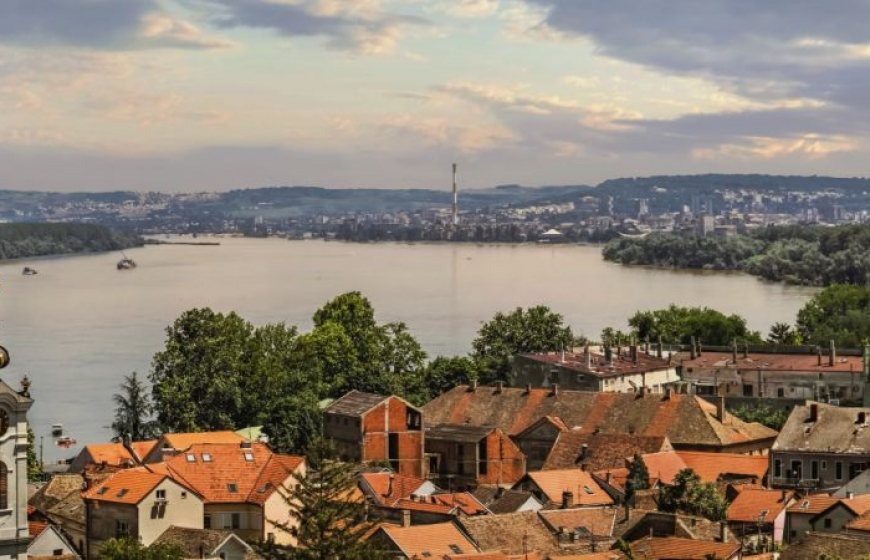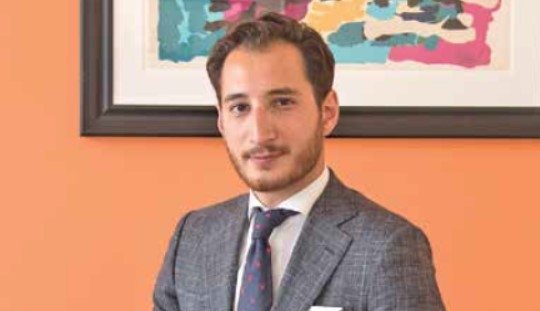
Serbia is still a largely unexplored market for Dutch companies, but one which has significant potential for innovative Dutch solutions, particularly in water. Oliver Sarov, Senior Policy Advisor for Economic Affairs and Trade at the Embassy of the Netherlands in Serbia and in Montenegro, will be in the Netherlands next week to get a clear picture of the expertise and ambitions of the Dutch water sector. And how to match Dutch expertise to Serbian challenges. Interested companies will have the opportunity to explore the possibilities themselves during a Water & Energy forum and Water Mission that the Embassy and NWP are preparing.

Dive into the Dutch water sector
“I am here for the Ministry of Foreign Affairs’ Advanced Trade & Investment Promotion training which includes being embedded in a Dutch company for five days. Given the opportunities in the water sector in Serbia and the plans we have with NWP, it was only logical for me to join my colleagues in the NWP and dive into the Dutch water sector. I am very happy that NWP has put together an intensive, varied and very interesting programme for me.
Catastrophic floods
Serbia is facing several challenges in the field of water and is interested in finding sustainable solutions to overcome them. In 2014, the country suffered catastrophic floods which caused around EUR 1.5 billion in damage and displaced many people. Much of the damage could have been avoided, reduced or alleviated by Dutch solutions. After all, the country has a history in dealing with water and flooding. And Dutch expertise has already been used successfully here. For example, in 2014 the strategically important Kolubara lignite mine filled with water. In a huge operation the Dutch specialist Van Heck pumped all the water out of the mine. Deltares is working on improving flood-risk mapping and prevention systems, as well as river-basin management. Structural measures are important, and Serbia – with the support of international financial institutions – is working hard on this. This means that there are ample opportunities for Dutch companies.
An equally interesting market is drinking water and waste water treatment. Much waste water is still being discharged untreated into Serbia’s waterways. This has obvious effects on public health and the environment. One of the most difficult dossiers for Serbia as an EU accession country is environmental protection. But it is an area that the Serbian Government is increasingly prioritising. In this too, the Netherlands also has a lot to offer.
Upgrading water ways and harbours
Serbia’s geographic location, on the crossroads between east and west, and being traversed by the Danube and other rivers, make river transport an interesting sector for development. The Serbian Government is looking at upgrading the waterways and strengthening its service. Some areas of the Danube and other rivers have become heavily silted and need to be dredged. Further, the country would also benefit from the building of river ports and upgrading the existing ones.
The Netherlands' reputation for water is excellent, but if we really want to progress, we must facilitate meetings between the Dutch water sector and Serbian entities. To this end, we are working on organising a Dutch Water & Energy Forum on 23 April to bring Dutch companies and Serbian key decision makers and stakeholders together. We are also organising tailormade B2B and B2G meetings during which Dutch companies can meet interesting partners ranging from local government authorities, knowledge institutes, potential local partners and others. For the water sector specifically, this event will be the kick-off for a water mission to Serbia that we are also working on at the moment. Participants of the mission will also be able to attend the RENEXPO Water & Energy expo at a reduced price and attend our yearly King’s Day Celebration. More information on that will follow soon.
Reality is different
We want to put Serbia on the radar for Dutch companies as a place where business can be done. Many Dutch companies’ picture of Serbia is still incomplete and often incorrect. Their picture is still strongly coloured by the region’s troubled recent history or preconceptions about insecurity and corruption. Unfortunately, this is often fuelled by the fact that when the country is in the news, it is not always positive. Unless Novak Djokovic wins of course, like he recently did at the Australian Open.
But luckily people’s perceptions of the country are changing. Anyone who has been to Serbia recently has seen that the reality is different. Just ask any of the more than 100 Dutch companies that are working in Serbia and with whom the Embassy is in contact. They are doing business successfully and they work in various sectors including beer brewing (Heineken has two breweries, producing the most popular beers in Serbia), retail (Ahold-Delhaize has the largest network of supermarkets in the country, employing over 11,000 people), shipbuilding, construction, textiles and renewable energy. We are proud of the Dutch business community there, and are very happy that there is now a Dutch-Serbian Business Association as well which helps guide newcomers on the Serbian market.
Stronger links
Of course, there are plenty of challenges to doing business as well. Companies need to be well prepared and gather information to find out where the opportunities lie, how to form partnerships and how to navigate the local business culture. That is why it is good to know that the Dutch Embassy and, more recently, the Dutch-Serbian Business Association are there to give advice and help alleviate bottlenecks. It is also why I am here. I want to get a better understanding of what Dutch companies offer and what they need so that I can help make sure that they can use the opportunities and we can build even stronger links between the two countries.”
More information
Want to know more about Oliver Sarov’s visit or the Forum mission in April? Please contact Ruben Vermeer, r.vermeer@nwp.nl or Suzanne Tietema, s.tietema@nwp.nl.
NWP's activities for Serbia are within the framework of the Partners for Water programme.